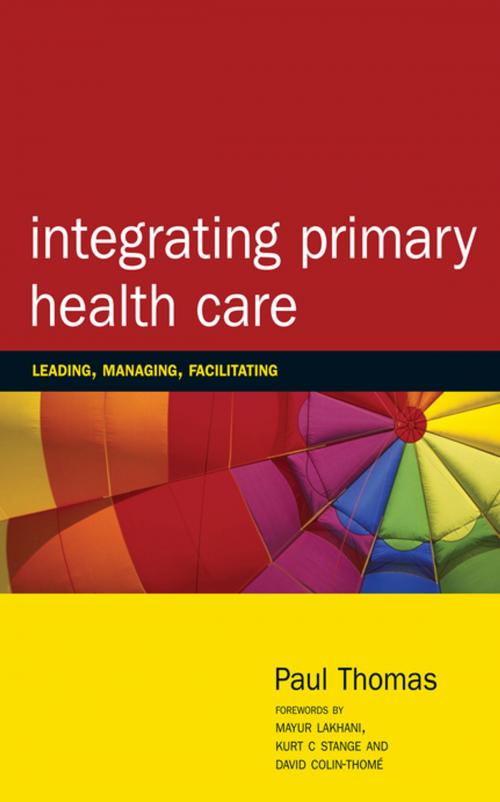Integrating Primary Healthcare
Leading, Managing, Facilitating
Nonfiction, Health & Well Being, Medical| Author: | Paul Thomas | ISBN: | 9781315345307 |
| Publisher: | CRC Press | Publication: | November 22, 2017 |
| Imprint: | CRC Press | Language: | English |
| Author: | Paul Thomas |
| ISBN: | 9781315345307 |
| Publisher: | CRC Press |
| Publication: | November 22, 2017 |
| Imprint: | CRC Press |
| Language: | English |
This book combines models, theory and practical advice that guides clinicians, managers and facilitators to lead integrated primary health care. Using case studies and real life examples, the practical sections are cross-referred to theoretical sections that show how theories of whole system learning and change can be applied in different situations. Exercises help the reader to devise their own tailor-made interventions in small organisations, in networks, and in large institutions. The latest theories about leadership in complex situations are covered and challenges to traditional approaches to research and understandings of health are made. This book is perfect for those who lead or teach change in health care institutions such as primary care organisations, in small organisations such as general practices, and through networks. In particular practitioners and managers who wish to make sense of complex interacting factors will find it of great benefit.
This book combines models, theory and practical advice that guides clinicians, managers and facilitators to lead integrated primary health care. Using case studies and real life examples, the practical sections are cross-referred to theoretical sections that show how theories of whole system learning and change can be applied in different situations. Exercises help the reader to devise their own tailor-made interventions in small organisations, in networks, and in large institutions. The latest theories about leadership in complex situations are covered and challenges to traditional approaches to research and understandings of health are made. This book is perfect for those who lead or teach change in health care institutions such as primary care organisations, in small organisations such as general practices, and through networks. In particular practitioners and managers who wish to make sense of complex interacting factors will find it of great benefit.















